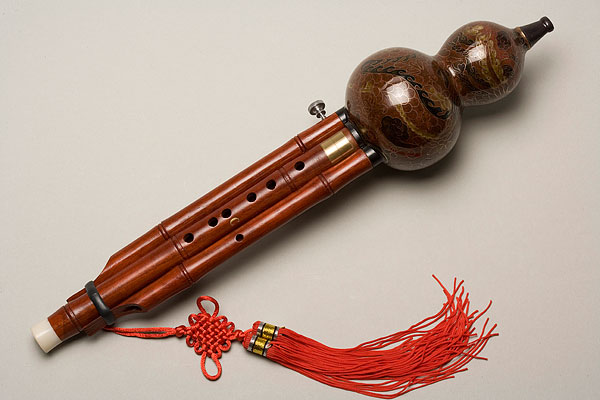Non-interface Fenugreek tuning solution with low overall pitch
Intonation is one of the key factors in the process of fenugreek playing. It is very important to ensure that each fenugreek can produce accurate standard pitch. For the overall production of hulusi without tuning interface, once the overall pitch is found to be low, it is usually necessary to adjust and repair in the following ways:

1. Adjust the reed
The pitch of the fenugreek is mainly determined by the reed in the main pipe. The thickness, hardness and curvature of the reed will affect the pitch. When the pitch is low, try to fine-tune the reed. By carefully thinning the tip part of the reed by professionals, reducing the effective vibration area of the reed can theoretically improve the pitch. Caution should be exercised in this operation, as excessive thinning may cause damage to the reed or change in timbre.
2. Adjust the tuning plug
Some fenugreek pipes have an adjustable tuning plug inside. Although the tuning mechanism of unjointed fenugreek is relatively simple, if the design already includes a removable tuning plug, the pitch can be fine-tuned by gently pushing the tuning plug inward or outward. However, please note that extreme caution should be exercised to avoid damaging the structure of the instrument or causing more serious problems with intonation.
3. Replace the appropriate hoist and head
If the above two methods are not applicable or the effect is limited, taking into account the overall structure of the fenugreek wire, replacing the right size, better resonance performance of the gourd, or choosing a length, aperture size more suitable for the head, can also indirectly affect the pitch. However, this way is equivalent to re-making a piece of fenugreek, which has higher cost and technical requirements.
4. Seek professional tuning services
For users who do not have the conditions to tune themselves, the safest and most effective way is to seek the help of a professional instrument repairman. They have professional tools and rich experience, and can take the most suitable means to adjust the pitch according to the actual situation to ensure that the fenugreek intonation returns to normal.
To sum up, for non-interface huluses with low overall pitch, priority should be given to adjusting the reed or internal tuning components by professionals. If necessary, consider replacing components or having a professional perform a full tuning. Caution must be exercised before any tuning operation to avoid damaging the instrument. At the same time, regular tuning and contrast with standard pitch is also an important maintenance work to maintain the intonation of fenugreek.
 渝公网安备 50010702504639号
渝公网安备 50010702504639号